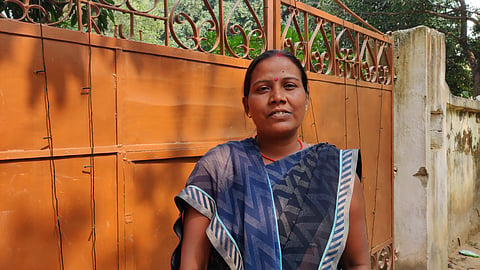People From Pratappur, Jharkhand End Open Defecation By Building Toilets
Pratappur, Nov 19 || The United Nations General Assembly formally recognised November 19 as World Toilet Day in 2013 and since then each year, on this date, sanitation campaigns are run across the world to help break taboos around issues connected with sanitation.
In India especially, the problem of defecating in the open has received urgent attention in the past few years with films, government initiatives and even shows like ‘Main Kuch Bhai Kar Sakti Hoon', (MKBKSH) spreading awareness about the importance of proper sanitation.
While World Toilet Day aims to tackle the global sanitation crisis, the villagers of Pratappur in Jharkhand have sworn once again on this day to uphold the idea that a toilet is a necessity for human dignity, health and well-being.
One of the reasons why they decided to end open defecation by building toilets was the information they gleaned from the edutainment show, ‘Main Kuch Bhi Kar Sakti Hoon.' The show not only popularised the idea of a #SwachhtaElaan or the pledge for good sanitation practices, but it also educated viewers about the many diseases that open defecation can spread.
Discussing how MKBKSH inspired her to demand that a toilet be built at home, Sangeeta Devi, a resident of Pratappur says, “Earlier we had to go a little further away from the village to defecate in groups. It was difficult, particularly during the rainy season. Then I decided to talk about this issue with my husband and asked him to make a toilet for me. The issue of money came up and so I decided to use my savings and even borrowed money from others. Many people made fun of me for taking a loan to build a toilet. But I did not let such reactions affect me. I had made up my mind.”
Not just women but even men were inspired by the show. Says 13-year-old Monu Kumar, “After watching MKBKSH, I started explaining to people how open defecation is wrong and could cause problems for them. I made them watch the serial on my mobile phone. If they refused to listen, I would write a person’s name on a flag and place it in the place where they defecated. This made them feel embarrassed and they stopped defecating.”
Poonam Muttreja, Executive Director, Population Foundation of India has over 35 years of experience in promoting women's rights, supporting rural livelihoods, and spearheading public advocacy.
She says, “I am happy that MKBKSH has become a trendsetter in using innovative communication techniques to change behaviours. In order to encourage healthier attitudes and habits, the show developed key phrases, and #Swachhta Elaan, or the pledge for good sanitation practices, was one such marker used in digital campaigns during the first 26 episodes of the series. This entertaining way of promoting hygienic practices reached millions of homes and inspired many to build toilets. It is very rewarding to document such reel to real stories because they prove we are making an impact in areas that are in critical need of information.”

